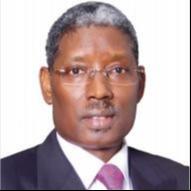The Chairman of the Northern Nigeria Development Company (NNDC), Alhaji Lamis Dikko, has expressed deep concern over the rising poverty levels in Northern Nigeria, revealing that more than 60% of the population in the region lives in poverty.
Speaking at the Northern Nigeria Investment and Industrialization Summit held in Abuja, Dikko said the 19 northern states are facing serious socio-economic challenges, including poor digital infrastructure, energy poverty, and outdated agricultural systems.
According to him, some states such as Zamfara and Sokoto are experiencing poverty rates of over 80%, in stark contrast to southern states, where poverty rates average about 30%.
“Despite years of intervention, traditional development methods have not worked. We must now embrace technology, digital infrastructure, and innovation as core pillars of our development strategy,” Dikko said.
He highlighted that the digital divide is worsening inequality, with internet penetration in Nigeria at just 48%, and many northern and rural communities still offline. He said this has left over 60 million people digitally excluded, limiting access to education, financial services, and job opportunities.
Dikko warned that if this trend continues, Northern Nigeria could be left behind in the $15.7 trillion global AI-driven economy projected by 2030.
“We must expand affordable broadband access, make smartphones accessible, and invest in reliable electricity to power digital inclusion,” he stated.
On agriculture, which remains the backbone of the North’s economy, Dikko said the sector is still dependent on outdated farming practices. He urged stakeholders to adopt modern digital tools such as drones, soil sensors, and AI-powered data analysis to boost productivity and reduce post-harvest losses.
The NNDC chairman also identified energy poverty as a major barrier to progress in the region. He lamented the unreliable power supply and called for increased investment in smart grid systems and renewable energy sources such as solar power to support industrial growth and rural development.
“Without reliable power, schools, hospitals, and small businesses cannot thrive. Energy is the foundation of development,” he added.
Dikko stressed the importance of regional cooperation, urging northern states to work together on digital literacy programs, skills development, and women’s empowerment, especially in rural communities.
“Inclusive growth is only possible when we empower women, youth, and marginalised groups with the tools and knowledge needed to succeed in today’s economy,” he concluded.

